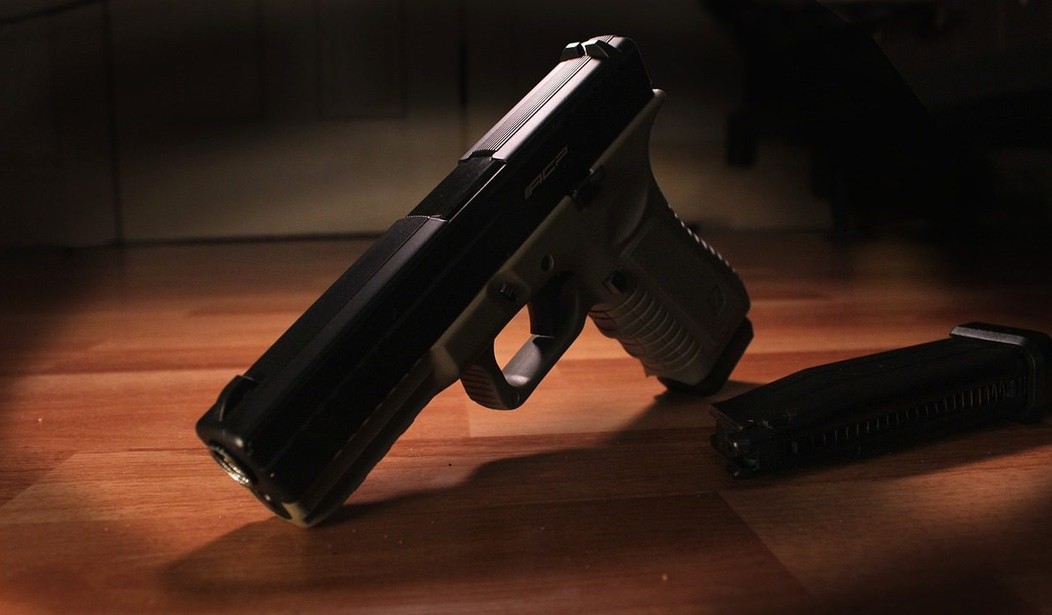There are a lot of gun-control-favoring researchers in academia. After all, when you look at the political lean at most colleges and universities, there’s no reason in the world to believe there would be much tolerance for pro-gun academics in the first place.
So, they’re going to generally be anti-gun.
They might make pretenses that they’re just interested in the research, but that doesn’t actually hold water when you look at their work.
And they’re pretty sure of their work, too. At least, it looks that way when you see them talk about it in the media.
Yet they recently had the opportunity to put their money where their mouth is.
As noted at America’s 1st Freedom, John Lott put up $1,000 against any of 12 gun control academics. The bet? Brazil.
We know that crime dropped in Brazil following then-President Jair Bolsonaro’s liberalization of gun laws there, leading to a massive increase in lawful gun owners.
The bet was over what would happen now with an anti-gun president in power there.
Lott put up $1,000 saying that violent crime would rise. All he needed was just one to take him up on the bet saying it would drop as a result of gun control policies.
Most of them didn’t bother to respond. The ones that did, though, sort of told on themselves.
Lott explained that 7 of the 12 didn’t respond to his emails. But Duke University’s Phil Cook did write back to say, “I like the idea of a bet, but am not going to take this one, since I have no confidence that guns and ammo will actually become scarcer in the neighborhoods with high rates of violence.”
Yes, criminals will likely keep their guns.
Right?
Yet people like Cook routinely think passing gun control laws here in the US would somehow create a different result entirely.
Like the result of a ban and mandatory “buyback” would see our criminals be more law-abiding than Brazilian bad guys.
Stanford’s John Donohue answered to say researchers should look at past data rather than making predictions. Lott pointed out that Donohue hadn’t shied away from making many predictions in the past; for example, Donohue wrote in The Washington Post last year after the Supreme Court’s New York State Rifle & Pistol Association v. Bruen decision: “We unfortunately know what effects this ruling will have in the relatively few states that still restrict the carrying of weapons. … It will cause a spike in violent crime.”
“These academics have no problem confidently making predictions for the press or legislative committees about the future effects of gun-control laws. But they aren’t willing to put their money where their mouths are in a way that would make people remember their bad predictions. Maybe that’s because they already know the crime-fighting benefits of private gun ownership,” said Lott.
I can’t say that Lott is wrong about what they may actually believe about gun ownership. They haven’t said anything in favor of it, obviously, but there are questions about whether they actually could if they wanted to.
Academic freedom is one of those things talked about in universities but is often really a one-sided affair. You can scream every leftist talking point you want and be protected, but say anything outside of leftist orthodoxy and you may well find yourself out of work.
Even if those who claim such a thing is false are right, if the perception exists, the effect is the same.
So yeah, they might actually believe gun ownership is a good thing and don’t feel they can admit it.
More than that, though, we can see the strength of their convictions. I could respect an “I don’t believe in betting” or something along those lines–hell, I’m not someone who will bet as a general rule, either, because i find it kind of addictive, so I avoid it–but it seems that the issue is neither is convinced that the policies they advocate for would actually cause violent crime to drop.
In other words, they’re not willing to put their money where their mouths are.
Lott clearly is.
Now, who actually believes in what they’re saying about gun control?








Join the conversation as a VIP Member